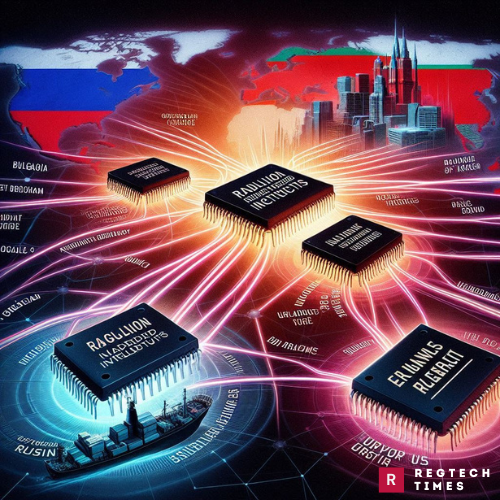In a case that highlights the critical importance of U.S. export control laws, a Bulgarian man, Milan Dimitrov, 50, has been extradited to the United States to face charges related to an alleged scheme to illegally export U.S. circuits to Russia. This case serves as a reminder of the lengths to which U.S. authorities will go to protect sensitive technology from unauthorized export.
The Alleged Scheme to Export U.S. Circuits
Milan Dimitrov recently appeared in federal court in San Antonio, Texas, for the first time after being extradited from Greece. He faces serious charges, including two counts of violating the International Emergency Economic Powers Act (IEEPA), one count of money laundering, and one count of making false statements to the U.S. Department of Commerce under the Export Control Reform Act (ECRA). Each of these charges could result in a maximum sentence of up to 20 years in federal prison.
The indictment also implicates Ilias Sabirov, 52, a Russian national, and Dimitar Dimitrov, 74, another Bulgarian citizen. Both remain at large and are sought after for their involvement in the conspiracy to export U.S. circuits to Russia. The charges against them, filed in December 2020, include violations of the IEEPA and money laundering.
The Scheme Unveiled
Court documents reveal that the conspiracy to unlawfully export U.S. circuits started as early as May 2014 and persisted until at least May 2018. The central focus of the allegations is the acquisition and illegal export of radiation-hardened integrated circuits from the United States to Russia. These circuits are especially valuable due to their ability to withstand high-radiation environments, such as outer space, making them essential for military and space applications.
EU Fund Fraud: Bulgarian Entrepreneur Charged in Laying Hen Farm Scam
Due to the sensitive nature of these U.S. circuits, the U.S. government imposes strict controls on their export to specific countries, including Russia. The defendants are accused of using a Bulgarian company, Multi Technology Integration Group EEOD, as a front to purchase these circuits in the United States and then transship them to Russia without the required licenses.
How the Scheme Worked
The indictment details how the defendants met with a supplier of U.S. circuits in Austin, Texas, in 2014. During this meeting, the supplier emphasized that these circuits could not be shipped to Russia due to U.S. trade restrictions. In response, Sabirov, who oversees two Russian companies—Cosmos Complect and OOO Sovtest Comp.—reportedly set up Multi Technology Integration Group in Bulgaria. By utilizing this Bulgarian company, they were able to purchase the circuits and ship them to Bulgaria, circumventing U.S. export controls.
Bulgaria Customs Scandal: High Stakes as Elections Loom
After the components arrived in Bulgaria in 2015, they were repackaged and then shipped to Sabirov’s companies in Russia. It is alleged that OOO Sovtest Comp. transferred over $1 million to Multi Technology Integration Group for these U.S. circuits. Additionally, between 2015 and 2018, Multi Technology Integration Group ordered more than $1.7 million worth of additional electronic components from another U.S.-based manufacturer, fulfilling contracts with OOO Sovtest Comp. in Russia.
The Investigation and Arrest
In late 2018, Milan Dimitrov was interviewed by a Department of Commerce export control officer at the offices of Multi Technology Integration Group in Bulgaria. During this interview, Dimitrov allegedly falsely claimed that the radiation-hardened U.S. circuits were still in Bulgaria, despite having already shipped them to Russia.
The Bulgarian Welfare Scandal : Unveiling a £54 Million Fraud
The investigation leading to Dimitrov’s arrest was a collaborative effort involving multiple agencies, including the U.S. Department of Commerce’s Office of Export Enforcement, the FBI, and the Defense Criminal Investigative Service. The seriousness of the charges and the ongoing search for Sabirov and Dimitar Dimitrov highlight the significant national security implications of this case.
National Security and Legal Ramifications
This case emphasizes the importance of enforcing U.S. export control laws, particularly regarding sensitive technology like U.S. circuits with potential military applications. The illegal export of these components not only breaches U.S. law but also represents a direct threat to national security. As this case moves forward, it will likely serve as a deterrent to those who might consider bypassing export regulations, demonstrating the vigilance of U.S. authorities in safeguarding critical technologies.
The prosecution of Milan Dimitrov and his associates is a crucial step in protecting U.S. circuits and ensuring they do not fall into the wrong hands, thus safeguarding the nation’s security interests.


